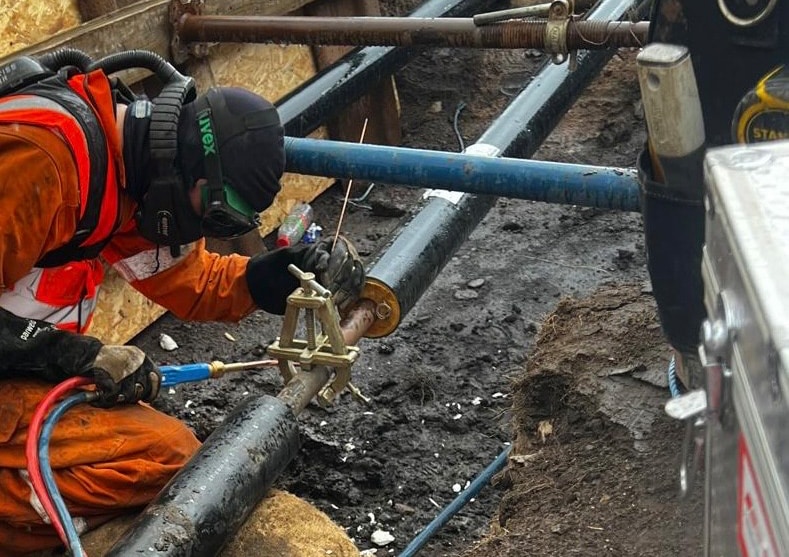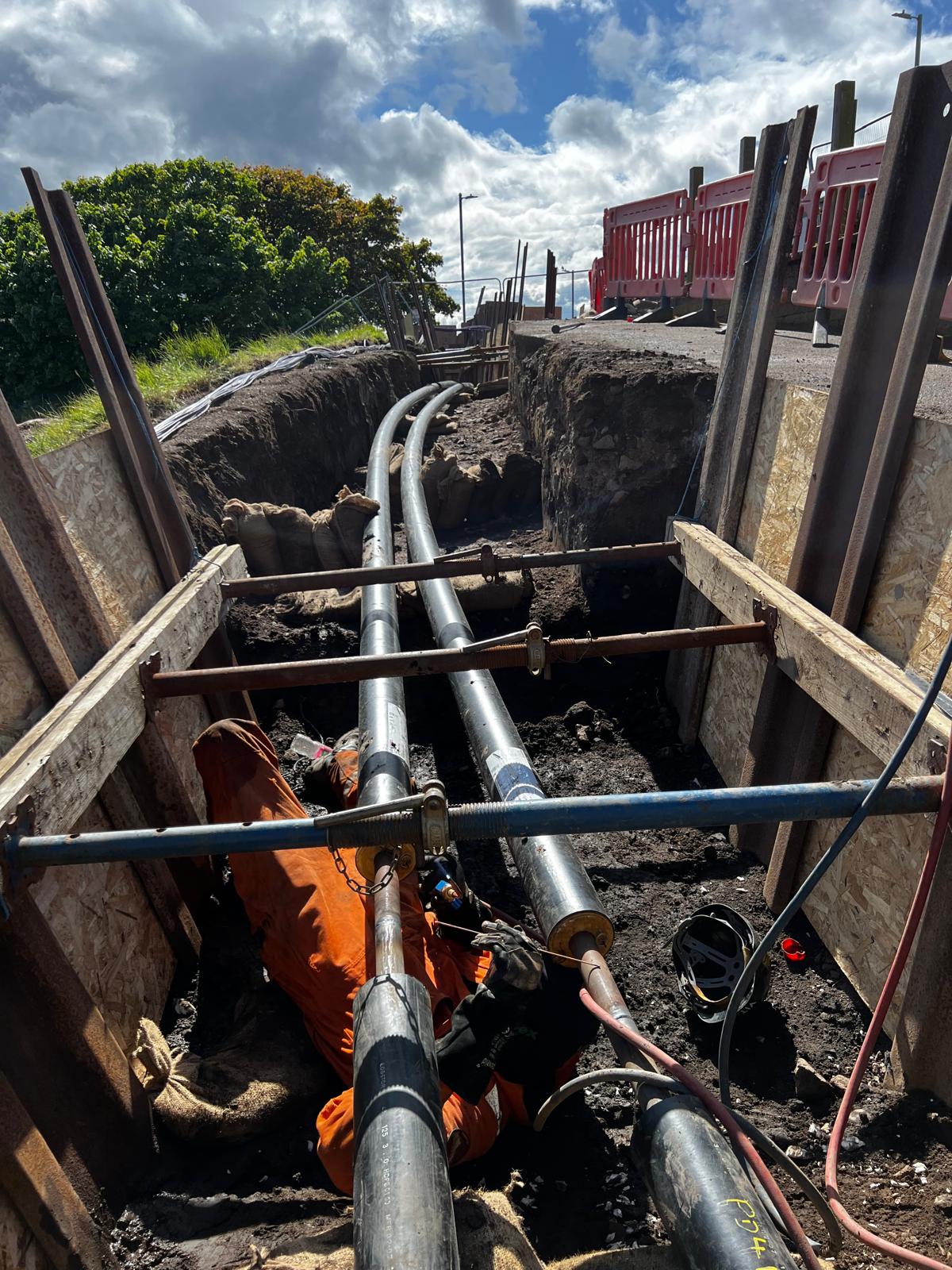Bridging The Welding Skills Gap to Ensure the UK Can Meet its Net Zero Targets
Vital Energi have dual trained their first crop of welders in the essential skills of both arc welding & oxyacetylene welding needed to deliver small & large diameter district heating pipework.

Whilst steel district heating mains are predominantly welded using Arc welding, pipe work of 100mm or less must use differing methods due to the wall thicknesses of the steel pipe work. Oxyacetylene welding is a preferred method for this for pipe sizes 100mm and below, and the number of trained operatives in this area has dwindled in recent years, alongside the overall number of welders in the UK declining by a quarter over the last five years.
As welders with the necessary skills are no longer available in the numbers required, Vital created a training programme at their £2m training academy to upskill their existing workforce with the necessary skills.
“Oxyacetylene welding has been in decline, as a skill, for a while, which is worrying as we believe Heat Network Zoning will see a significant increase in the amount of district heating being installed, and this is a necessary skill for successful delivery. If this continues it will create a skills gap which will be a genuine barrier to the UK delivering heat networks and meeting its net zero targets.
“The only way to address this is for organisations to take responsibility and train employees in the essential skills they will need to deliver heat networks to the high standard required for what is an essential part of the UK’s energy infrastructure.”
The training sees Vital’s employees undertake a 6-month training course under the guidance of an experienced welding tutor and, after passing practical exams at an independent UKAS testing house, become accredited to perform oxyacetylene welding.

“We continue to see an aging workforce when it comes to welders for pre-insulated steel pipes which truly brings the impending skills gap into focus and, unless we address it, we will see the industry fighting over an ever-decreasing skills pool and struggling to deliver district heating projects. This would be a disaster for the UK as we’ve seen the positive impact heat networks can have on city-wide projects such as Torry, Manchester, Liverpool and Leeds to name a few.
“There has been some outstanding work done to create high standards for the industry, such as the Heat Network Code of Practice and the work being done through the Heat Network Technical Assurance Scheme, but this will only have an impact if operatives have the skills necessary to deliver a quality install and we are confident that graduates from our training course will have these skills.”
The first graduates from the project are now working to install major heat networks throughout the UK and we look forward to expanding the training to more Vital Energi employees.
